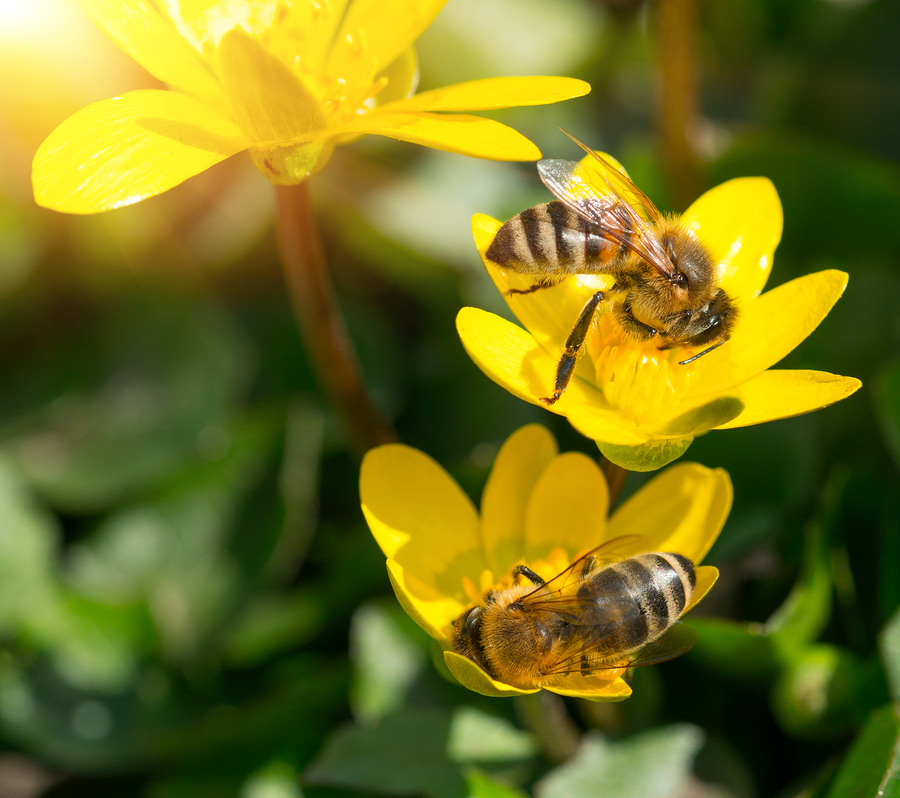The Environmental Protection Agency (EPA) is pulling a dozen products containing toxic chemicals harmful to honeybees. It’s the end of a lengthy legal battle, but unfortunately not the end of the threat to bees.
As a result of the lawsuit, the EPA has canceled registration, effective as of May 20, of the pesticides known to harm bees. They are from a class of chemicals called neonicotinoids produced by Bayer, Valent and Syngenta.
The need for registration comes from The Federal Insecticide, Fungicide, and Rodenticide Act, (a U.S. federal law that structured the basic system of pesticide regulation to protect applicators, consumers and the environment) that states all pesticides sold or distributed in the U.S. must be registered by the EPA.
Beekeepers have expressed concern that the widespread use of neonics is endangering both wild and domesticated bees, which are vital to pollinating commercial vegetable, fruit and nut crops. Neonicotinoid pesticides (commonly called neonics) attack the nervous system of insects. Studies have confirmed they kill bees and hurt their ability to reproduce. They were developed as an alternative to two other highly toxic pesticides called organophosphate and carbamate, and are chemically related to nicotine.
RELATED:
Unlike traditional pesticides, neonics are toxic to insects when taken up by the root system of a plant, and are often used as a seed coating on soybeans, corn and cotton. Increased use has linked neonics to declines of wild bees, honeybees and other insects.
In December, under a settlement agreement tied to an Endangered Species Act challenge by environmental groups, Bayer, Valent and Syngenta voluntarily agreed to petition the EPA to cancel 12 out of 59 products containing the active ingredients clothianidin and thiamethoxam (both are neonicotinoids). George Kimbrell, legal director at the Center for Food safety, litigated the case and was involved in the settlement agreement, and stated:
“Today’s cancellation of these neonicotinoid pesticides is a hard-won battle and landmark step in the right direction.”1
7 of the 12 pesticides canceled were for seed coating products used by farmers and, according to Syngenta, any move to further restrict access to neonicotinoids risks harming farmers by removing one of their most widely used insecticides. Syngenta said in a statement:
“After five years of litigation, this settlement represents a positive outcome in the interest of all parties. The terms clearly support America’s farmers while ensuring continued protection of the environment. The settlement allows growers continued access to trusted neonicotinoid products containing thiamethoxam, essential for controlling destructive pests, managing resistance, and supporting integrated pest management.”1
RELATED:
Farmers will still have access to other neonic-based pesticides for now, but, according to Kimbrell:
“This entire class of active ingredient soon will be up for re-registration [under the Federal Insecticide, Fungicide, and Rodenticide Act] by 2022. These first 12 were just an interim step.”1
Environmental groups, thankfully, are pressuring the EPA for a full ban on ALL neonics use outdoors in the coming years, based on related endangered species concerns.
In fact, the European Union adopted a near total ban on outdoor uses of neonic pesticides in April, 2019. The restrictions imposed by the E.U. pertain to 3 out of 5 active neonic ingredients, and the two that remain are to be used only on plants that spend their entire life cycle in greenhouses.
For the sake of all insects, including bees, we certainly hope the U.S. will follow close behind with a complete ban of all neonic-based pesticides in the VERY near future.












